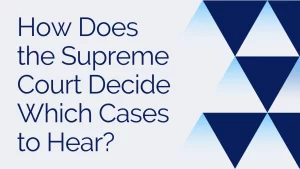How to Prove Emotional Abuse in Divorce Court
What Counts as Emotional Abuse
Emotional abuse involves non-physical behaviors such as intimidation, isolation, degradation, humiliation, and control. If your spouse frequently puts you down, isolates you from loved ones, or makes you feel unsafe, you may be experiencing emotional abuse. Other common emotionally abusive behaviors include gaslighting, coercion, verbal threats, and financial control.
Documenting the Emotional Abuse
Since emotional abuse often happens privately and leaves no physical marks, documenting the abuse is key to building your case.
Keep a Journal of Incidents
Document each incident in as much detail as possible including dates, times, locations, verbatim statements, and specific behaviors. Photos or videos can also help capture abusive incidents.
Save Digital Evidence
Voicemails, text messages, and emails that demonstrate emotional abuse can serve as key evidence. Take screenshots and make copies.
Obtain Statements from Witnesses
Accounts from friends, family members, counselors, or others who have observed incidents can help corroborate your testimony.
Using Documentation to prove emotional distress in court
Enter Documentation as Evidence
Supply the court with detailed accounts of abuse. Journals, recordings, messages, and affidavits from witnesses can demonstrate a pattern.
Have Experts Analyze Evidence
Psychologists can emphasize to the court the detrimental impacts emotional abuse has had on you. Medical records related to mental health issues stemming from the abuse can also be compelling evidence.
Testify On How the Abuse Has Affected You
Describe specific incidents and detail how the emotional abuse has damaged your mental well-being and perception of self-worth. Stay as objective as possible under cross-examination.
Overcoming Challenges in Proving Emotional Abuse
Emotional Abuse Can Be Difficult to Prove
Without physical marks, courts may weigh heavily on documentation and testimony to determine if a pattern of abuse exists. Expect to encounter skepticism.
The Abuser May Try to Discredit Your Accusations
Be prepared for accusations that you are fabricating or exaggerating claims. Calmly pointing to documentation and professional opinions can undermine gaslighting attempts.
Demonstrate a Clear Pattern of Abuse
Successfully proving emotional abuse requires showing a repeated pattern of behaviors over time, not just isolated incidents. Documentation is key to establishing this pattern.
Getting the Help You Need
Find an Experienced Lawyer
An attorney well-versed in domestic abuse cases can help you understand what constitutes emotional abuse in your jurisdiction and the best way to build your case.
Learn About Laws and Standards in Your State
Since emotional abuse laws vary by state, research standards and precedents set by courts in your area. An attorney can explain how courts rule on these cases.
Connect with Support Groups
Advocacy groups and counseling provide validation and ensure you don’t feel alone. They can also connect you with legal resources.
In Summary
Living with emotional abuse takes a tremendous toll and you deserve much better. While proving these allegations presents challenges, the right documentation, testimony, resources, and legal support can help demonstrate a pattern of abuse – allowing you to safely move on with your life.
Frequently Asked Questions
What if I don’t have much documentation of the abuse?
Even without extensive documentation, your testimony can still demonstrate a pattern of abuse over time. An attorney can help develop the best legal strategy and identify other evidence to support your claims.
Will my abusive spouse’s divorce lawyer attack my character to undermine my accusations?
Quite possibly, yes. But stick to the facts and calmly point back to the documentation each time factual incidents of abuse are questioned. Character attacks don’t change documented patterns.
What percentage of emotional abuse divorce cases win in court?
Statistics vary widely, but with proper evidence emotional abuse grounds for divorce can certainly prevail in court. According to some estimates, over 75 percent of adequately documented emotional abuse claims result in some form of judgment for the victim.








